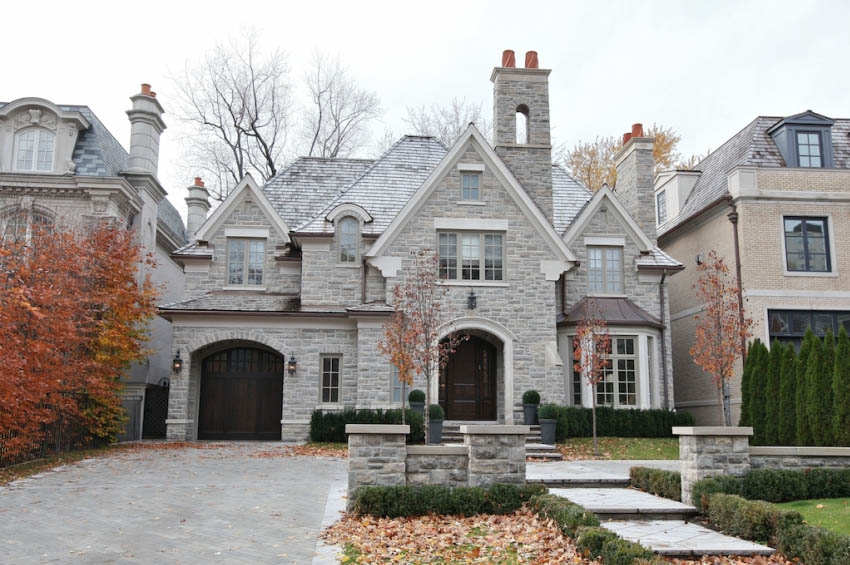Hi everyone! Most of my readers already know me. For those of you that don’t, my name is Danielle Demerino and I’m a Toronto Real Estate Agent serving Toronto and the surrounding areas. I was recently asked to speak about bidding wars on rental properties on AM640 with Kelly Cutrara and thought you all might be interested! I’ve included both the audio file and transcript below.
Kelly: Have you heard about this? With high sale prices on the housing market, you might not want to offload your house. You might want to consider renting it for awhile because it appears that the high sale prices is actually having a ripple effect on single family rental homes in Ontario and there’s bidding wars that are ensuing. Here to talk about it is Danielle Demerino. She’s a Toronto real estate broker, www.danielleinthecity.ca is the name of her website. Danielle, it’s good to have you on the show.
Danielle: Thank you for having me, happy Monday morning.
Kelly: Well happy Monday to you as well. The situation is…it’s unheard of, people prompting bidding wars. I did hear about bidding wars going down in the city when it was really hard to get a condo back in the day. That people were starting to offer landlords this and that. That’s not really the case anymore. It’s happening with single family dwellings. Can you talk about that?
Danielle: I can yeah! It’s definitely something that we haven’t seen before in the suburbs, but we also haven’t seen this many people, at least in the last few decades, wanting to live in the suburbs. So you know, everybody put a premium on space when they started working from home, using their house as a gym, and now the desirability of downtown condos and downtown rentals aren’t as high as they are in the suburbs, forcing the prices up to purchase in the suburbs and of course like you said, the ripple effect of the rental rates going up.
I think that the problem lay in mortgage qualifications and the tightening of criteria from all of these banks. They’ve made it basically impossible for you to get a mortgage at the price of what real estate is these days. So it forces people to rent. You can make a $100,000 a year and still not be able to buy a $500,000 condo. There are barely any $500,000 condos and there are barely any $1,000,000 dollar houses. If you’ve got a dual income, you’re handcuffed into renting and now you’re at the mercy of landlords who’ve also spent a premium on purchasing.
Kelly: So you’re finding landlords have bought the house, which I find interesting because I would have thought that most of the people that bought the houses are going to live in the house, but these are landlords that have bought houses, specifically looking at the rental market and saying, “okay, there is a shortage of rental properties, I have an opportunity to make money here” and their driving up the cost.
Danielle: Exactly and they’ve made so much money on their previous investment with the equity in their home because it’s skyrocketed in price and now they can buy a second property. Our society teaches people if you can keep getting them, keep buying properties. That’s the way to wealth in Canada. So yeah, they’re purposely buying them to have them as rentals, whereas they didn’t do that in the suburbs before.
Another point in that article actually that you spoke about was housing starts. There’s not enough housing starts. The reason why is the government makes it too difficult for builders to do it. They can barely turn a profit the way that they’re taxed on new builds nowadays. So you’re not getting enough product onto the market, going to be further enhanced by an uptick in immigration after the COVID restrictions are lifted. So you’re either going to have to see reversal of mortgage lending criteria, which we saw with CMHC actually last week, they changed their stance on the qualifications by loosening the laws around that, around their credit evaluations, like Genworth did a year ago. So something’s gonna have to happen or it’s going to be impossible for people to even rent.
Kelly: Yeah, the fact is according to the data released by the Canadian Mortgage and Housing Corporation (CMHC) that just over 90% of detached homes in Canada are owner occupied. That leaves very little vacant, property when it comes to rentals. So obviously there’s a fine on for the rent. What are you seeing when it comes to people wanting to rent, what are they actually pitching to landlords? It used to be, you would have to convince a landlord that they should pick you because you’re going to be the most responsible person. You’re going to make your rent on time and you are going to treat their building with care, like it’s your own. Now, what are people offering?
Danielle: I think that if you’re not a Canadian citizen or if you’re a permanent resident or you’re a new immigrant, you’re having to put a lot more months upfront. Six or seven months of rent upfront to secure the deal and you’re probably paying 10-20% higher than the list or the asking rental rate to get a place. Now that that’s suburbs right now, if you try and get a rental in the city, it’s easy.
Kelly: But surely not a single family home?
Danielle: Even single family homes in the city are still comparatively, almost cheaper than they are in the suburbs right now because the homes are smaller in the city. People don’t want to live there, but overall the rental market is cheaper in the city right now than it is the suburbs because of the premium on space.
Kelly: Well that’s interesting. Now I know that the Canadian Mortgage and Housing Corporation (CMHC) have said that they don’t track data for rental houses because they’re such a small part of their listing. Actually it’s the Canadian Real Estate Association (CREA) that doesn’t track the data for them because they’re so limited. Can you give us an idea of how much a single family home in the burbs is running for and or listed for and what the rent is?
Danielle: Yeah. I mean, it’s different in each suburb. Comparing Oakville to Brampton isn’t going to work, but if you get a three or four bedroom home, you’re still paying $4,000 bucks a month in the suburbs and you’re paying about $4,000 in the city. They’re smaller, but it’s similar, three or four bedroom home is about $4,000-4,500 in the city.
Kelly: That’s interesting. So how many people are bidding against each other? What are you seeing?
Danielle: It could be anywhere from like five to 10 offers.
Kelly: Wow, it’s mind blowing for a lot of us that have in the past rented places in the city. I was lucky enough to be renting when people were buying condos. There was a lot of stuff on the market at the time, so I didn’t have to go through that. What are the solutions in the short run and what are the solutions in the long run?
Danielle: Well, I think things might change once we are ordered to go back to the office. I think that you might see less pressure on the rental market in the suburbs as people decide that they actually want to move back to the city where there’s more inventory for them to rent. It might be a passive solution. I think the other solution is to allow for people to get a mortgage easier. Also for the housing starts to become more abundant. The government needs to allow builders to build at a quicker pace and perhaps tax them less than they have, to give them an incentive to build.
Kelly: The only thing I don’t really agree with you on is to allow people to get a mortgage easier. That’s only going to drive up the cost of housing. We’d have more people bidding on the houses, which drives up the cost even more. If more people qualify for a mortgage?
Danielle: If we build more houses and they can buy more houses, then they can rent out more homes.
Kelly: But if there’s not more houses, if we just make it so more people qualify for a mortgage, then you’re still driving up the cost of the house eventually. No?
Danielle: Yes you are driving up the house.
Kelly: It is tough. It’s like this wheel keeps going round and round.
Danielle: Exactly. Yeah I guess none of us have the actual answer but I think housing starts are important.
Kelly: Listen, I hear what you’re saying. We have to incentivize builders to build rental units and I don’t know what it’s going to take to do that. I’m sure there’s a lot of people that are more well versed, like yourself on how we get these developers to be incentivized.
But as it stands right now, I appreciate you joining us Danielle to talk about this really new phenomenon, bidding wars for rental houses. Do you think that this will continue on in the near future if we don’t do something about the supply?
Danielle: I agree.
Kelly: All right, have a great day. Thanks so much, Danielle! If you want to check out Danielle’s website, www.danielleinthecity.ca. Danielle Demerino, Toronto real estate broker.



